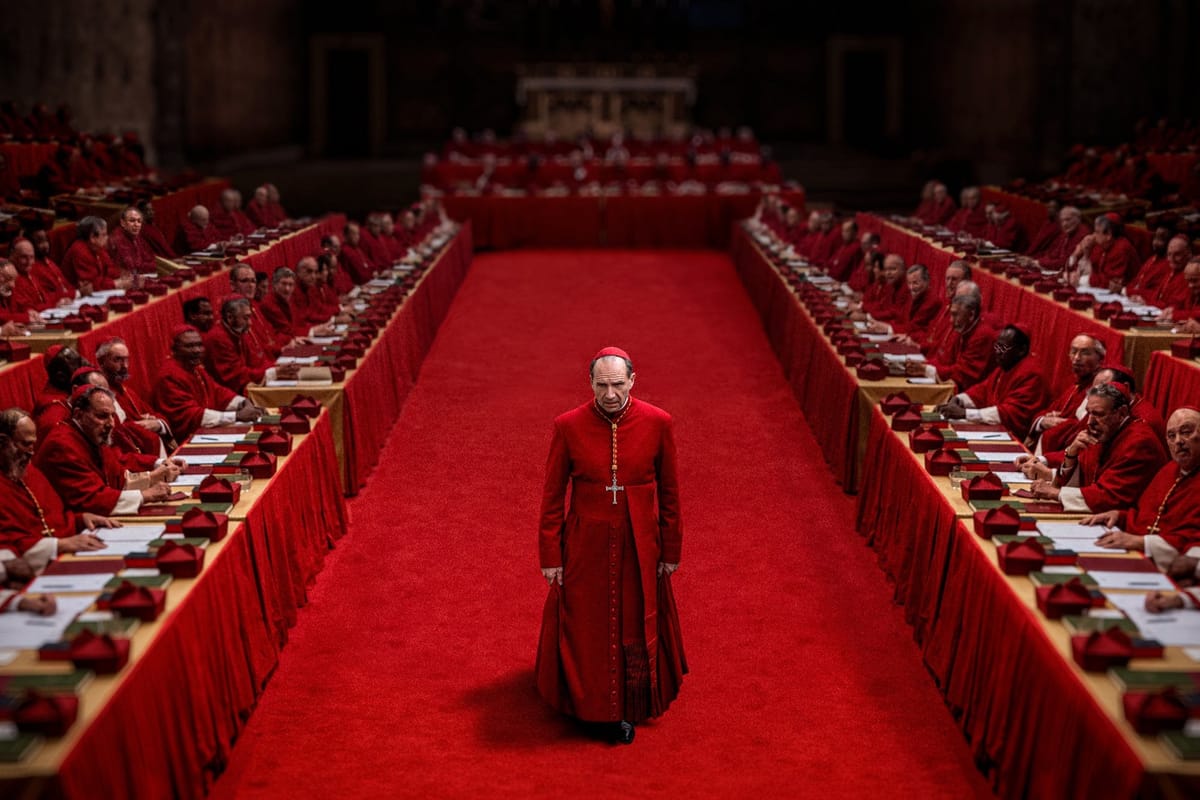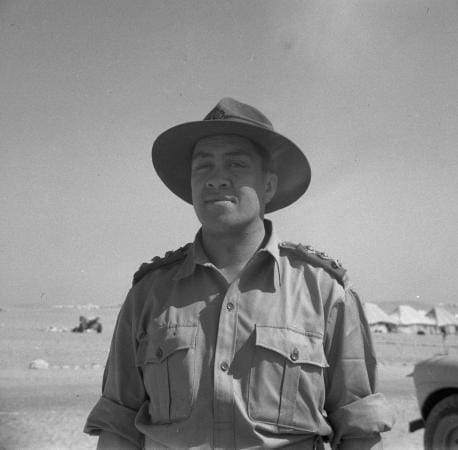Conclave: A Movie Review
A gripping political thriller on venerable men in scarlet cassock and zucchetto

Dir. Edward Berger, 2024 | Genre: Mystery & Thriller, Drama | TMDB
Conspiracies and hushed caucuses unfurl at the Holy See after sede vacante (Latin, lit. vacant seat) was declared. The Pope had died. Cardinals vote for his replacement to lead the Catholic world amidst intrigues and deepening schism within the ecclesiastical order. Quo Vadis?—where should the Church of Rome go—is the central question to Robert Harris’s 2016 novel of the same name. When Peter asked Jesus Christ the same question on the Appian Way, the former was inspired to embrace martyrdom as Peter was crucified upside-down on the now-eponymous Saint Peter’s Basilica: the proverbial rock on which the Catholic Church was built. Conclave is a gripping mystery-thriller where conspirators dressed in liturgical vestments grapple to steer the Petrine congregation as they see fit.
Cardinal Lawrence (Ralph Fiennes) was tasked to facilitate the conclave, of which the successor to Saint Peter would be chosen. Conducted in secrecy, the electorate is locked inside the Sistine Chapel for the poll. Their political machinations were no different from the laity’s democratic ballots, fraught with scandals and motley contenders. Cardinal Tedesco (Sergio Castellitto) was a bigoted fundamentalist. Cardinal Adeyemi (Lucian Msamati) was the Nigerian prospect that hid an unseemly past. Cardinal Tremblay (John Lithgow) was a crafty moderate with questionable integrity. Cardinal Benítez (Carlos Diehz) was a johnny-come-lately with an unassuming persona. Cardinal Bellini (Stanley Tucci) was Lawrence’s confidant in lobbying Liberal voters. One of them is the next supreme pontiff.
Gregorian chants are the common incidental music to clerical dramas. But Volker Bertelmann’s score of cristal baschet and string instruments produced a uniquely haunting atmosphere—sudden pizzicato sounds boom like a jump scare. Perhaps my petty criticism is on Peter Straughan’s slight deviation from Harris’s page-turner. Cardinal Lawrence (Lomeli in the novel) was an Italian, not an Englishman. Cardinal Benítez of the Baghdad Archdiocese was a Filipino, not the Mexican Archbishop of Kabul. I don’t see a cogent reason for these changes. However, I applaud Sister Agnes’s (Isabella Rossellini) character improvements, highlighting the often overlooked role of women in the Church. When adapting a book for screenplay, can we at least agree on being faithful to the source material unless it has a critical message to convey?
It is worth noting that, in the real world, one of the preferiti (Italian, lit. favourite) to succeed Pope Francis is a Filipino—the first Asian Pope in the long millennium should he be elected. It would have placed the screen adaptation closer to reality. Not because I’m a Filipino myself, but if you have seen the film, you would understand why I press (lightly) on this matter.
Disclaimer
The views and opinions expressed by authors in their submissions do not necessarily reflect those of Craccum. Craccum does not endorse any content or viewpoints published and is not responsible for the accuracy or reliability of the information provided by contributors.





